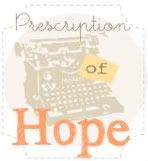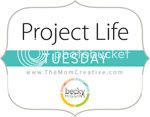Today, I have an interview with my friend Susan. She is such a beautiful person. Susan and I became friends through a fashion and art community, Polyvore.
When I think of Susan, I think about a quote of Elisabeth Kubler-Ross:
The most beautiful people we have known are those who have known defeat, known suffering, known struggle, known loss, and have found their way out of the depths. These persons have an appreciati
Beautiful people do not just happen.
I want to thank Susan for being kind enough to share her story with all of us. I know that sharing such a personal journey can't always be easy to do. I know that her strength and her perseverance will inspire.
My name is Susan. I just turned 30 on April 12th. I've lived in the Salt Lake City area for four years. My hometown is Sacramento. I enjoy designing and creating. I enjoy trying new things and going new places. I enjoy learning foreign languages, especially sign language.
What illness have you been diagnosed with and when were you diagnosed?
I have been diagnosed with bipolar II disorder. With bipolar II, the onset is later in life. Usually late teens or early adulthood. With me, things started changing when I was 17, then took a severe turn when I was 18 and pregnant. With bipolar II, the depression is more severe than the mania, generally. I had to quit school and work when things got bad. I was so depressed and felt so much emotional pain that I could barely do anything. I didn't recognize myself in the mirror. I was tempted to find relief through drugs, but, since I was pregnant and didn't want to hurt the fetus, I didn't. Thankfully.
How long did you experience bipolar symptoms before you received a diagnosis?
It took me four years to be diagnosed. I just thought I was going crazy. I didn't know what to tell the doctors because I didn't understand what was going on. And I was afraid to tell the doctors anything because I had always wanted to adopt children. I thought if they knew what was going on, that I would never be able to adopt. It was I who first diagnosed me. At first, my doctor sent me to a stress management class. I thought it was a great class, but that there was more going on. He then sent me to a class on depression. Again, great class, but there was more going on. I ended up doing research on my own and when I read about bipolar disorder it was so familiar and made sense. I wrote up a couple of papers about why I thought I was bipolar and took it to my doctor He wasn't convinced. He said he thought I just had some weird form of depression. He actually used the word "weird". He decided to make photo copies of the things I had written. While he was in the hall, he met with the person at the head of the bipolar department. He showed him my notes. The head of the department told him that, yes, I was bipolar. I was switched and put into his care.
Have you had to make adjustments in your life to deal with your illness?
After I was diagnosed, I was put on medication, and started seeing a counselor. I had lost my dad when I was two and had been sexually abused when I was around three or four, which is typical of people with bipolar II to have had traumatic events in their childhood. I had to wait until I was somewhat stable for the counseling to do any good. Not too long after I was put on medication, I became pregnant again and had to go off of the medication. To help me get through, I stayed with family members for part of the pregnancy. My husband was in the process of fixing up our house in order to sell it, and I was just getting in the way. During this time, I was having a lot of what I called "irrational thoughts". My mind would be bombarded with thoughts and I was unable to tell what was real and what was irrational often. There were periods of times when I could think clearly, and I'd use those times to review the thoughts that I'd had and label them as rational or irrational. Then, when they popped into my head again, I could remember what they were, since I couldn't think in that moment what they were. If that makes sense. For example, if there was a lot of noise and confusion going on, it was very difficult for me since my head was already noisy and confused. When this happened, I had the thought that if the outside noise didn't stop, my head would explode. Obviously, that wasn't true. But that is how it seemed. Once I labeled it as being irrational, I didn't have to worry about it anymore. There were many, many other thoughts like that that I had to label. Labeling the thoughts was extremely helpful.
After baby number 2 was born, I went through a period of time with no symptoms whatsoever. I felt like a normal person for the space of a year when I was breastfeeding. I felt like I could take on the world. As soon as I stopped breastfeeding, the depression and irritability crept back into my life. This started a long, difficult period of time of trying to find stability with medications that takes us to today. I've tried every kind of bipolar medicine and am currently taking two medications as well as a cholesterol medication because of a side effect of one of them. I am almost stable. Through it all, I've had difficulties in being there for my kids the way I want to be, difficulty in my marriage and difficulty in keeping my house and life as organized as I'd like it to be.
Is there a factor (i.e., faith, family love, hope, etc.) that helps you cope with the struggles of your Bipolar disorder?
My children have been my reason to wake up every morning and try again. My husband has been a huge support. My hope has kept me trying medication after medication. My faith has kept me away from drugs and kept me close to Jesus. During a time when I only felt blackness, I came across a scripture that helped a great deal. I can't remember where I found it, but it talked about having the spirit and knowing it not. It strengthened me because I was trying my hardest and feeling nothing. It was comforting to know that I could be being guided and not know it. I also went to a twelve-step program for a time that was really helpful. I was invited to go to help a friend, but it ended up helping me. It was for people with any kind of addiction. Not just alcohol. Most there were people who were addicted to pornography. It was encouraging to see people set free. It also helped me forgive my childhood abuser. Forgiveness is a wonderful thing.
Are there any final thoughts you would like to share, Susan?
To people who are going through difficult times, I would say to be grateful for the little things. Notice them. Don't lose hope. Build a good support group. There are people who care. Stay away from people who bring you down. And, lastly, you can be guided without even knowing it.
Thank you again, Susan! You are a truly beautiful person!


















No comments:
Post a Comment